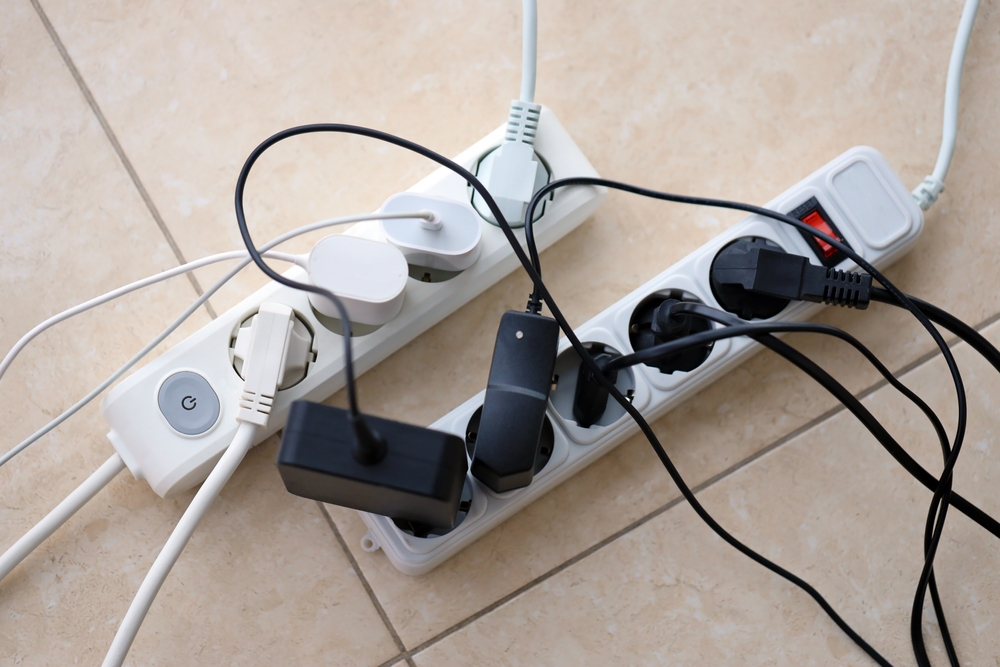
Busy couples juggle demanding work schedules, social commitments, and daily tasks, which makes it easy to overlook safety hazards around the home. Even small household safety mistakes can lead to costly repairs, preventable accidents, or long-term health risks. The problem is that many of these issues are not obvious until something goes wrong, and by then, the cleanup can be stressful and expensive. Paying attention to these often-ignored warning signs can protect your home, your budget, and your peace of mind. With a little awareness and a few simple changes, couples can create a safer living environment without sacrificing time or convenience.
1. Ignoring Expired Smoke Alarms and Missing Batteries
One of the most common household safety mistakes is failing to check smoke alarms regularly. Many couples assume the devices work simply because they are mounted on the wall. Smoke alarms need new batteries at least once a year and full replacement every ten years to stay effective. Dead or missing batteries turn lifesaving devices into useless plastic. Making a simple annual reminder can prevent dangerous oversights and keep your home protected.
2. Overloading Outlets and Using Damaged Cords
Electrical issues are a major source of home fires, yet they are among the household safety mistakes that busy couples ignore most often. Overloaded outlets, especially those powering multiple devices, increase the risk of overheating. Damaged or frayed cords can spark, smoke, or cause electrical shocks. Many couples delay replacing them because the cords still technically work. Taking a few minutes to inspect your electrical setup can prevent far more serious problems later.
3. Skipping Regular Dryer Vent Cleaning
The buildup of lint in dryer vents is one of the most dangerous household safety mistakes, and it is incredibly common. Lint accumulates quickly and can block airflow, which increases the risk of overheating and fires. Busy couples often clean the lint trap but forget the vent itself, which collects far more debris over time. A clogged dryer vent also makes your machine less efficient, raising energy bills. Cleaning the vent at least once a year keeps your home safer and your dryer working properly.
4. Leaving Clutter in Hallways and Near Exits
Clutter might seem harmless, but it is one of the household safety mistakes that can create dangerous trip hazards. Items like shoes, bags, laundry baskets, or boxes block pathways and slow evacuation during emergencies. Couples often overlook these issues because clutter builds up gradually. Keeping walkways clear reduces the risk of falls and makes your home easier to navigate. A few minutes of tidying each day can eliminate unnecessary hazards.
5. Forgetting to Check For Leaks Under Sinks
Minor plumbing leaks are easy to miss, but they are among the most expensive household safety mistakes to ignore. A slow drip under a sink can lead to mold growth, wood damage, and costly repairs. Busy couples may notice dampness but assume it is harmless or temporary. Regularly checking under sinks for moisture or discoloration can prevent long term structural damage. Fixing small leaks promptly protects both your home and your budget.
6. Not Securing Heavy Furniture or Appliances
Tipping hazards are one of the most overlooked household safety mistakes, especially in homes without children. Heavy items like bookshelves, dressers, and televisions can fall during earthquakes, accidental bumps, or uneven flooring. Many couples assume anchoring is unnecessary because they are careful or rarely move furniture. Securing these items takes little time and significantly reduces injury risk. Wall anchors and safety straps provide peace of mind with minimal effort.
7. Ignoring Outdoor Hazards Like Loose Steps or Damaged Railings
Outdoor safety often gets pushed to the bottom of the to do list, making it another source of household safety mistakes. Loose steps, broken railings, cracked walkways, and unstable decks create serious fall risks. Couples may not notice these hazards until guests point them out or an accident happens. Regular outdoor inspections help catch issues early before they become dangerous. Repairing small problems quickly prevents more expensive fixes down the road.
A Safer Home Starts With Small, Consistent Habits
Building a safe household does not require major renovations or endless time. Avoiding common household safety mistakes is about awareness, routines, and communication. When couples work together to check hazards, maintain appliances, and stay organized, their home becomes a more secure and comfortable place to live. These small steps create long lasting protection and reduce the likelihood of stressful emergencies.
Which household safety mistakes have surprised you in the past, and what helped you fix them? Share your thoughts in the comments.
What to Read Next…
- 7 Safety Risks No One Warns Child-Free Homeowners About
- 10 Housing Upgrades Child-Free Couples Prioritize That Most Homeowners Ignore
- Safeguard Your Family’s Health: 12 Foods You Should Only Buy Organic
- 7 Hidden Costs of Homeownership That Shock First-Time Buyers
- How to Keep Yourself Safe When Traveling Long Distances

No Comments yet!